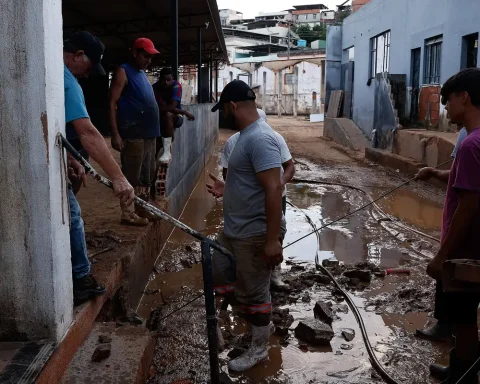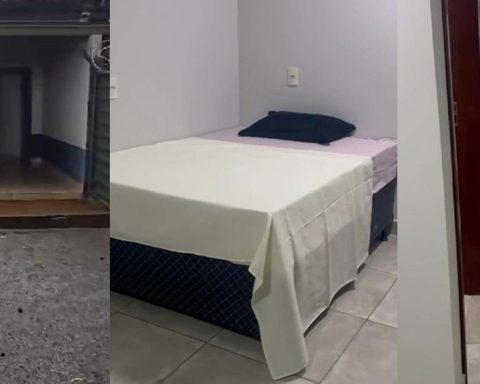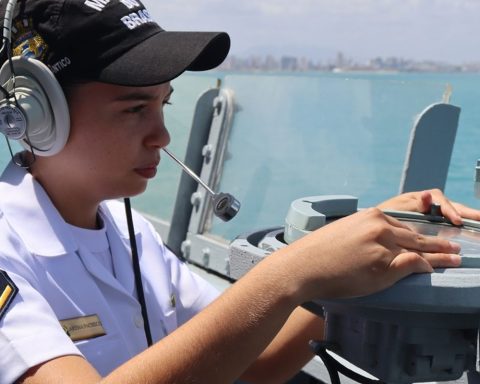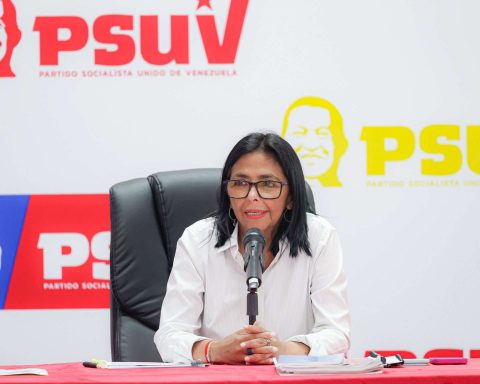The Polytechnic School of the Federal University of Rio de Janeiro (UFRJ), the first higher education engineering school in Brazil and the Americas and the seventh in the world, celebrated this Friday (16) the 230th anniversary of its creation, with an uninterrupted performance, despite the political and state changes that have occurred in the country since Colonial Brazil.
THE Brazil Agency, the director of the Polytechnic, Cláudia Morgado, highlighted the inclusive nature of the school, which has always had black students, “even before the abolition of slavery”. The first and, perhaps, the most famous black Brazilian engineer was André Rebouças, son of a freed slave.
Born in 1838 and died in 1898, André Rebouças was one of the great Brazilian engineers of the Empire period. He was a student and professor at the Central Army School, the origin of the UFRJ Polytechnic School. He and his brother Antônio Rebouças (1839-1874) were the first Afro-descendants to graduate in engineering in the country, in 1860. Antônio died early. Both stood out for their professional competence. André was also one of the main abolitionists of his time.
The Rebouças brothers name the galleries in the tunnel that connects the Rio Comprido to Lagoa, in Rio de Janeiro, the city where they arrived in 1846, with their family, from Bahia, where they were born. After graduating, they studied for a year and seven months in Europe, where they specialized in the construction of railways and seaports. Together, the brothers worked in Paraná, where they developed the Paranaguá-Curitiba Railroad, considered the largest national railway project.
Medals
During the commemorative ceremony of the Politécnica’s anniversary, held at the National Historical Museum, in Praça XV, in the central region of Rio, the André Rebouças medal and the 230th anniversary medal of the institution were awarded to 35 professionals appointed by the UFRJ Departmental Council.
The objective was to value national engineering personalities, professors, former employees and active servants who contributed to an engineering of excellence in Brazil.
Among the names are directors of institutions that contributed to the quality of the new national curriculum guidelines in engineering, in 2019. They are Carlos Ivan, president of Fundação Getulio Vargas (FGV); Francis Bogossian, President of the National Academy of Engineering (ANE); Luís Antônio Cosenza, president of the Regional Council of Engineering and Agronomy of Rio de Janeiro (CREA-RJ); Pedro Celestino, ex-president of the Engineering Club and president of Internacional de Consultancy and Planning SA (Icoplan); and Wagner Victer, former Secretary of Education for the State of Rio de Janeiro and director of the Legislative Assembly (Alerj).
“André Rebouças is a personality who represents the spirit of the polytechnic engineer. He was a humanist, a great engineer, a businessman. He thought about public policy. Anyway, he has a thought for the abolition of poverty in Brazil, it was not just the abolition of slavery. He really is an icon that we have in history and represents several graduates and engineers trained in other schools who perform important functions in Brazil and who build the country and make us advance socially”, recalled Cláudia Morgado.
He was also professor of Material Resistance at the Polytechnic School. The André Rebouças Medal was created in 2017, has a sculpted face and the words “Merito da Polytechnica do Rio de Janeiro André Rebouças”.
The 230 Year Medal was designed exclusively for the event. It features the façade of the building in Largo de São Francisco, the longest address of the institution, since its denomination as Escola Central Real Academia Militar (1812), later Escola Central (1858), Escola Polytechnica (1874-1937) and Escola Nacional de Engenharia ( 1937-1965). Today, the Polytechnic School is located in the Technology Center, on Ilha do Fundão. In 2003, the unit was retitled with the current name of Escola Politécnica da UFRJ
Cláudia informed that, in 1920, the Polytechnic became one of the main pillars of the university, and is currently one of the largest undergraduate units at the university, with more than 12% of graduates, “all with the highest grade in the National Institute of Studies and Anísio Teixeira Educational Research (INEP). We are responsible for the good indicators of UFRJ”. The medal was awarded to active and retired Polytechnic teachers.
Restructuring
The school is promoting a major restructuring in the pedagogical plans of the courses, aligned with the new curricular guidelines, aiming at greater integration with the industry. A careers office, a reception center and academic support were created to meet the various social and emotional demands of students.
According to the director, the dropout level is low, less than 10%, but retention is still high. The idea is “to seek a more practical and applied form of calculations and physics, using more computing, using more investment in infrastructure, because engineering today is more expensive than in the past,” she said.
According to Cláudia, not long ago, everything was very difficult. Today, with access to the internet, it is necessary to have the digital world and equipment, mainly so that students with economic insufficiency have equal conditions to have a good education in engineering.
The director explained that the Polytechnic School has always been, historically, one of the units with a very low budget, compared to other UFRJ units. For 2023, however, she estimated that the budget should rise to around R$700,000, for 5,400 students from thirteen engineering courses. “It is the largest undergraduate unit,” she reiterated.
Recital
To also celebrate the 230th anniversary of the Polytechnic School, the University’s School of Music, through the Ópera na UFRJ project, premiered the recital forever, by music director and screenwriter Lenine Santos. The work shows the public part of the collection of songs by the Brazilian composer Antônio Carlos Gomes (1836-1896), written during the second empire in Brazil, which chronicle the customs of the time.
In Portuguese, Italian and French, the songs are an important part of the production of Carlos Gomes, considered the greatest opera composer in the Americas. The project is supported by the Arts Support Program (Proart) of the Science and Culture Forum (FCC).
















